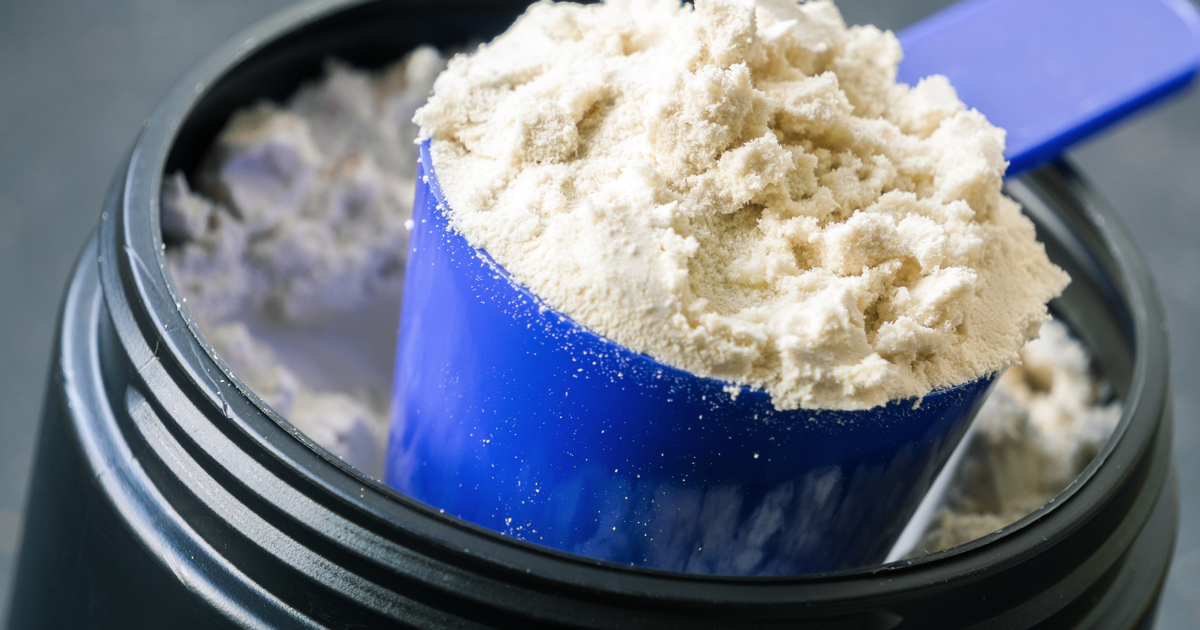Bulking up or slimming down: The scoop on protein powder

Protein powders are commonly associated with vigorous fitness activities such as bodybuilding or powerlifting. For the everyday person, protein supplements have become a lot more common for a person to either gain muscle mass or to lose weight. Although this may seem like a simple equation, there a few things to consider before introducing a protein supplement into your diet. We sat down to talk with nutrition therapist Jacque Schwartz, RDN, LMNT, to get the big scoop on protein powder.
What is protein powder?
Protein powder, as the name entails, is a dietary supplement to complement protein intake. These supplements are made from a variety of sources such as whey, egg, pea, soy, rice, etc. Whey protein is probably the most common because it’s water-soluble, cost-effective and is a complete protein.
Is protein powder good for you?
Using protein powder is neither good nor bad. It is important to see protein powder as a tool to reach your goals. Whether you are trying to gain muscle mass or lose weight, the bigger picture of nutrition needs to be taken into consideration.
How does protein powder help lose weight?
A protein shake can be used as a quick and easy breakfast or lunch. Instead of going through a fast-food line or grabbing something heavy in calories like a donut or bagel, a protein shake can be used to replace a meal. Include apples or berries as part of the breakfast to get the full range of nutrients with the protein shake.
Will protein powder give me energy?
At the end of the day, protein powder contains calories and calories mean energy for the body to burn. If you’re used to having no breakfast and start drinking protein shakes in the morning, you might feel a difference in energy. Depending on the protein product, some supplements contain caffeine or B vitamins to give a bigger boost in energy.
Why does protein cause diarrhea, constipation or acne?
If a supplement is causing some type of digestive response, look into the ingredients within the protein powder. If a person experiences diarrhea after consuming a protein shake, it is possible their body is not used to digesting this amount of lactose. Too much protein may cause constipation, so a balance of fibrous foods or an over-the-counter supplement can be added. Although there is not a lot of connection between protein supplements and acne, consider the type of activity being done. It is assumed if protein is being consumed, physical activity may have increased so making sure to shower after a workout may alleviate some of those problems. If those problems continue to persist, consider removing the protein shake from the diet. If acne clears up, then the culprit is found.
How do I know how much protein I need in my diet?
It is important to understand the amount of protein your body needs. Schwartz recommends .8 grams of protein per 1 kg of body weight to maintain body weight or 1.1 grams per 1 kg of body weight to gain muscle mass. In relation to food, imagine a single quarter-pound hamburger patty – it’s about 30 grams of protein.
Remember, protein powder cannot do its job if diets are not balanced. Protein powder is marketed as this magic bullet to help someone gain lots of muscle mass or as a meal replacement to shed some weight. Protein powder is a great way to have breakfast or a faster way to consume more protein to bulk up. Regardless of the reason behind using a protein supplement, whole foods are still a great way to consume nutrients.





